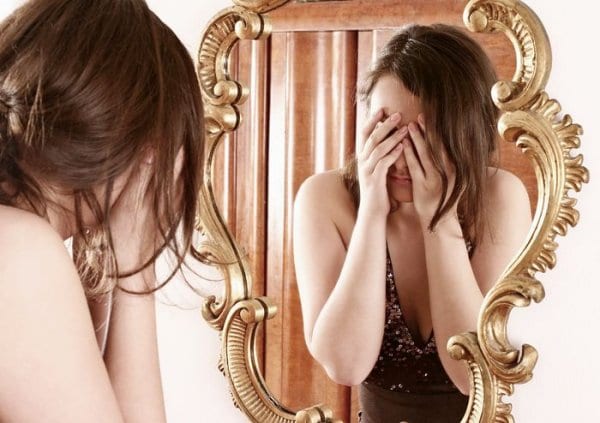By: Emily McGuigan
My journey with food has been a long and exhausting eight year cycle of self-destruction. In those eight years, a mental and physical war broke out against myself, with myself. As someone who already suffers from mental illness, I have unintentionally used eating as a weapon of self harm. An eating disorder is a private battle; I have learned manipulation tactics in order to hide it but now try to voice some struggles in the hope that eventually I can detach myself from them. However, recovery is far from easy and I still face the embarrassing reality of relapsing into self-harming behaviors and the episodes of depression and anxiety that shortly follow.
When I was about 12 years old, I started to develop major insecurities my body. My body didn’t look like the other girls’ bodies so I felt the need to change it. I didn’t understand anything about genetics, nutrition, or exercise, yet somehow I felt like I was qualified to be in charge of how to manipulate my body. At 14 years old, I began fad diets and counted every calorie. With a set intake of about 1000 calories a day or less to lose maximum weight, I constantly went over. Going over my prescribed caloric intake intensified my desperation to lose weight so I skipped meals. Eventually I began emotionally eating to deal with not only the stress of life in general but also the stress of not looking how I wanted to. After binging I would try to purge myself but always failed. I went from attempting to eat the bare minimum to eating until I felt sick, both extremes resulting in self-hatred. Instead of worrying about growing and nurturing my body, I focused on depriving and punishing it.
Years later, I added an obsession with exercise and burning off what I ate. I wasn’t working out to feel good; I was punishing my body with the exercise to make up for my disordered eating habits. Eating wasn’t becoming any less daunting when it came to picking my meals because the internet basically says everything is unhealthy. I read every nutrition label and didn’t touch it if I saw any high numbers. I feared food. My life and mind became a constant see-saw of being addicted to food or being addicted to the absence of food, and my weight had fluctuated just as much.
It’s incredibly frustrating to me that I have spent so much of my life grieving over the very thing that fuels my body. I constantly have to fight myself to not fall into such extreme eating habits again. I face shame and guilt, and admitting this to someone makes me feel like they will constantly be watching me or associating any time I eat with a disorder. I love food and always will so it is not always the case that when I eat I regret it or am experiencing control issues. Some days are better than others and my sport motivates me to stay on track. I now understand body composition, nutrition, and exercise, but all of that gets left behind when the anxiety about lack of progress kicks in. I don’t have as many extreme eating episodes anymore but sometimes when I think I have completely gotten over my disorder, there comes a day where I lose all control and it comes back in full swing. Eating disorders are not black and white; having any level of an eating disorder can be a very slippery slope.
People often associate eating disorders with Anorexia Nervosa or Bulimia Nervosa, but the spectrum is so much larger than those two. Less commonly talked about is Binge Eating Disorder. Binge Eating Disorder is defined as: “a severe, life-threatening and treatable eating disorder characterized by recurrent episodes of eating large quantities of food (often very quickly and to the point of discomfort); a feeling of a loss of control during the binge; experiencing shame, distress or guilt afterwards; and not regularly using unhealthy compensatory measures (e.g., purging) to counter the binge eating. It is the most common eating disorder in the United States.”
I have been in therapy for years, but it took me a long time to start addressing my challenges with my relationship with food. There have been times where I have questioned if I made everything up, and that I really just have an unhealthy diet. I have questioned if my binging is actually binging, or if I just think it is because it exceeds the amount of food I would actually like to have eaten. But then I remember how real my anxiety and depression are and know that I have to take it day by day.
National Eating Disorders Association Helpline: (800) 931-2237.


